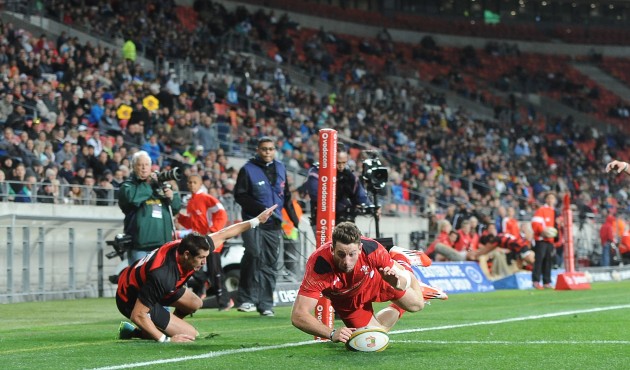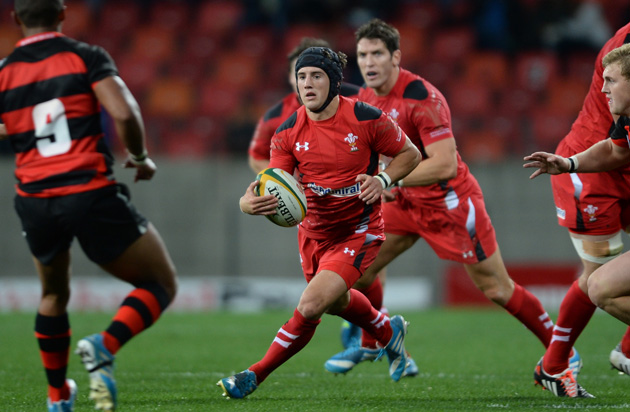Warren Gatland was pleased with Wales' 34-12 win, but what did he take from an easy victory and how will it help him as he prepares for the First Test
A training ground win
Wales beat the EP Kings by a convincing 34-12. It was exactly the result and performance that the coaching staff would have hoped for. Despite some well-structured phase play from the Kings and the occasional line break; there was always going to be a gulf in fitness, skillsets and size. The difference in class was evident from Wales’ early decision to shun kickable penalties in favour of the opportunity to hone their set-piece at the lineout. Barring a few careless lineouts in the oppositions’ 22, Wales’ set piece was solid – particularly the scrummage. It was also encouraging to see Wales’ maul working so effectively – it will need to be at its best against the Boks.
Whilst elements of Wales’ team play impressed, so too did certain individuals. Ian Evans’ lineout work, ruck clearance and ball carrying was so good that it may have blurred Wales’ options to partner Alun-Wyn Jones. Matthew Morgan, Josh Turnbull and Cory Allen excelled, but it is also worth noting the performance of James Hook. Currently, and unfairly, Hook has to perform 20% better than his peers to receive a fraction of the praise. Hook’s distribution, line kicking and goal kicking was composed – and his ‘rip and strip’ in the tackle, was as impressive as ever. Wales only have two recognised No 10s in South Africa and Hook could well be a factor in this series.
Matthew Morgan justifies his selection
If you’ve ever had a wasp stuck in your car whilst you’re driving, then you will know that something seemingly small can cause havoc. Matthew Morgan did just that against the Kings. His footwork and lateral movement frequently broke the King’s defensive line and regularly rendered the first defender redundant. The speed at which he was able to gather deep kicks and return to the tackle line was lethal.
Even when Morgan chose not to run himself his link play was immaculate – his flat passes to his wingman Jordan Williams were mightily effective. Of course Morgan made mistakes. He turned the ball over on occasion and he did drift out of the defensive line. But on the whole Morgan’s much criticised defence was solid. Even if Morgan hasn’t yet managed to convince all of the doubters, particularly at test level, he will certainly have got them out of their seats. Bravo Nipper!
Cory Allen. Got the lot.
Cory Allen has got the full house of skills and against the Kings he pulled out the full repertoire. It was yet another composed performance where Allen proved that he has the skillset required to play at the highest level. He executed the basics superbly against the Kings. His carrying in the 12 and 13 channel was dependable – regularly getting over the gainline and always retaining possession. His defence was assured and his kick chase was immediate.
But Allen showed that he has more than what is merely required at test level – he has what is desired at that level. Allen’s footwork meant that he was able to step inside the blitz defence and expose the acres of space left behind. Allen also attempted a deft reverse flick in the opening minutes of the game and executed some neat grass hugging diagonal kicks. Allen may still be behind Jamie Roberts, Jon Davies and Scott Williams but he’s getting close enough to ankle-tap one of them.
Lack of genuine open-side evident
The Welsh backrow were effective against the Kings. Dan Baker continued to impress with his fusion of hard carrying and soft hands. Dan Lydiate’s low profile tackling was immensely effective at dropping the King’s ball carriers before they’d approached the tackle line and Josh Turnbull had an impressive showing in the No. 7 jersey – Turnbull’s carrying and first-up tackles were a key feature of the Welsh performance. But if there was one slight worry it may have been the lack of defensive turnovers at the breakdown. It was always going to be thus.
This isn’t to say that the Welsh backrow weren’t effective at the breakdown – they were. They delivered quick, clean ball for their nine and slowed the King’s ball significantly. But there were few penalties as a result of defensive turnovers – the sort in which the absent Sam Warburton and Justin Tipuric specialise. Defensive turnovers can generate valuable, kickable penalties and Wales will be in dire need of those against the Springboks.
What is forward?
I know little about physics. After ten minutes of watching a documentary on the origins of the universe my facial expression is similar to that of a man who has had two thirds of his brain removed. But whilst my grasp of physics is limited I do know which direction forward is. Rugby seemingly doesn’t. Aaron Shingler’s pass to Jordan Williams in the 59th minute was given as forward. As it should have. It was forward.
But if Shingler’s pass was forward then so too was Ratu Kuridrani’s pass for the Wallabies against France, which was so forward that it nearly crossed into another line of longitude – yet it was judged as going backwards. Rugby really doesn’t help itself with its need for ‘interpretation’ of its rules. No sooner have we got a tighter grip on the scrummage than forward passes become an issue. Rugby could do without it. It’s complicated enough already…








